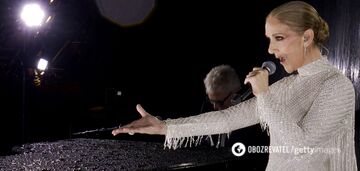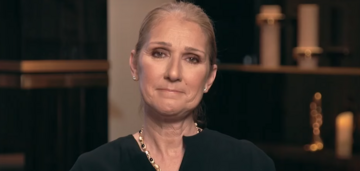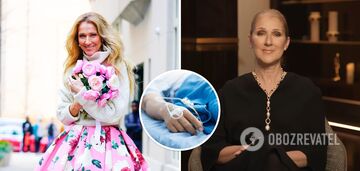
Céline Dion
She was the youngest of fourteen children in a working-class family in Quebec, and she should have been happy that her little hands could reach the cheese sandwiches, not to mention the piano, left over from the older children. But her family, living in a small village called Charlemagne, east of Montreal, loved two things more than anything else: children and music. (Céline herself was named after a song her mother liked to hum when she was pregnant.) Celine's parents ran a small restaurant and club where the children had the opportunity to show off their musical talents to the public to the accompaniment of her father's accordion and her mother's violin, and Celine first tried her hand as a vocalist at the age of five. By the time she was twelve, Céline had composed her first song and, with the help of her mother and brother, recorded a demo cassette, which she then sent to an address they found in an album by the popular French performer Genet Renault. It turned out to be the address of Rene Angeli, who invited Céline to his office as soon as he received the tape. When he heard her sing "live," he cried. He became her first fan; that was just the beginning - then she would have millions of them. Celine's ascent had begun.
Dion gradually transformed herself from a singer who performed on nightclub stages into a sweet-voiced siren of pop music (a surprisingly high percentage of her songs have the words "love" or "amor" in the title). Her path to the top was fairly smooth, but not without difficulties - record companies, as it turned out, were not as eager to invest in her as Angeli was. But Angeli was so enamored with Dion's talent that he mortgaged his own house to pay for her debut. The risk proved worth it - Celine's first two albums, La Voix du bon Dieu and Celine Chante Noel, made her a Canadian sensation. Within a short time, the young singer had won a string of awards, including a gold medal at the Yamaha Festival in Tokyo. By 1983, while still in her teens, Dion had become the first Canadian ever to have a gold record in France.
Céline had virtually none of the difficulties of adolescence that had blighted more than one brilliantly launched career. The young diva grew more and more popular with each new song, whether it was about "the depth of her love," "the power of her love" or "the immeasurability of her love." She won countless Felix and Juno awards (the Canadian Grammys). The high point of the heyday of the first phase of her career came in 1988, when she won the Eurovision Song Contest in Dublin, and performed "live" in front of six hundred million viewers in Europe, the USSR, the Middle East, Japan and Australia. The hardest thing yet to do, however, was to get her noticed in Canada's neighbouring country, the United States.
In 1990, Dion debuted her English-language album, Unison, on Epic Records. However, her real breakthrough to the American market came with the help of Walt Disney Studios. Celine was chosen to sing the theme song to the "Beauty and the Beast" cartoon, and the song became the mainstay of her second English language album, "Celine Dion", 1992. The theme to "Beauty and the Beast" became No1 on the charts and brought the performer two major world music awards at once: a Grammy and an Oscar.
Dion quickly conquered the States: "Colour of My Love", released in 1993, composed mainly of ballads, drove America crazy. As always, the album had many hits with the word "love" in its title.
Constant concerts, tours, studio work left little time for Celine's personal life and "real" rather than fictional love. It turned out that Rene Angeli managed to solve this problem as well. Romantic relationship between him and his best client began, barely the latter turned nineteen. Three times before married Angeli, who, moreover, was twenty-six years older than Dion, a few years kept secret their relationship, fearing to scare fans of the singer. But when they were finally married in Montreal's Notre Dame Basilica, Canadians treated the event with no less reverence than a royal wedding.
Dion's performance at the opening ceremonies of the 1996 Atlanta Olympics was a testament to her place on the world stage. The Canadian's performance of "The Power of the Dream," a song co-written by Linda Thompson, Babyface and David Foster (who contributed to all of her English-language albums), left a deep mark on the hearts of millions of Americans. And while some call Celine Dion a "vocal machine" and many critics consider her performance style cold and mechanical, Dion, with her tremendous capacity for work and commercial skill, continues her ascent. Her 1996 album, Falling Into You, won two Grammy awards: album of the year and best pop album. And yet perhaps the main success awaited the singer with the release of James Cameron's Titanic.





















